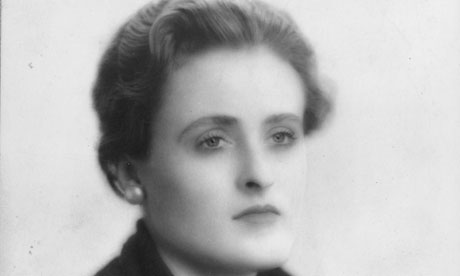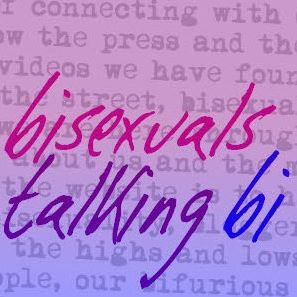Posted inBisexuals I never met books History Lesbians Women
Bi lives: Nerina Shute

Nerina Shute, in the early 1930s
February is LGBT history month (in the UK) and – although I have several other blog posts in the offing/promised/massively overdue - I really want to add my twopennorth while I can.
Actually many more pennorth than that. This is a long post, so I’m splitting it into three, to be published over three days, thereby just about squashing it in before the end of the month.
People in the bisexual community often talk about the need for more information about bi lives – people who are now, or were in the past, some kind of bisexual. And whereas there can often be debates or confusion about whether we now can give a contemporary identity (bisexual) to them then, with Nerina there is no confusion. "I am bisexual," she said to writer Matthew Sweet, when she was in her 90s. "What does your generation think about such things?"
Nerina Shute: 1908-2004
This isn’t the first time I’ve written on this blog about Nerina – teenage film critic of the silent era, novelist, London bohemian, laugh-out-loud memoir writer and explicitly bisexual at a time it is so often assumed that people weren’t. But since 2006, when I wrote about her before, I've had more time to think about her, and her life and times.
I first found out about Nerina when I read her memoir We Mixed Our Drinks in around 2000, while I was doing research for another project. Published in 1944, WMOD is the story of her life from her teenage years in the USA when her mother lost all their money in a goldmine fraud; her time as reluctant film critic – she didn’t like film stars; an even more reluctant journalist – she didn’t know what she was doing; and an eager young novelist (nicknamed “the girl with the barbarous touch”).
At the time, WMOD was considered very shocking. Nerina is open about having lived with a man without being married, about being taken to a Chelsea orgy (where the hostess wore a vest that was both too long and too short, and they were thrown out for not taking off their clothes), about the “pansy” and lesbian circles in which she never quite said she moved.
I am fascinated by Nerina for a whole range of reasons, some of which may already be apparent. So fascinated, in fact, that even though writing about her was a significant part of my master’s degree in life history research, I still google her and her gang to see if anything new shows up. Sure enough, I found this superlative blog Cocktails with Elvira. It’s based around a notorious court case – of socialite Elvira Barney, who shot her lover in 1932.
The blog also contains a lot of information about bohemian London of that time, much of which would now be (and somewhat differently would have been then) considered “queer”. This is not simply the haute intelligentsia of the Bloomsbury Group, which has been well-documented. The various overlapping London bohemias of the 20s and 30s (and earlier, and later?) seem to have been overwhelmingly queer. Musicians, actors, models, chorus girls and boys, journalists and people about town seemed to have been strikingly unstraight. Not to mention artists, particularly those condemned with the word “Chelsea”.
“Hello darling, how’s your sex life? Lousy, darling, how’s yours?”
While Matt Houlbrook’s brilliant book Queer London looks at all the different ways in which men at this time interacted with each other for sexual/romantic purposes, there has been very little published about women’s relationships with each other outside of the most famous instances – Violet Trefusis and Vita Sackville-West, for instance.
Now that I’ve read all Nerina’s memoirs/autobiographies, it seems really apparent that there was a lively lesbian/bi/queer women’s scene in London in the interwar period and afterwards. There is more information about some of these characters in Cocktails with Elvira, and I wish I had the time to research this properly. This scene was mainly based around friendship networks of various sorts, rather than the cottaging/picking up/Turkish baths scene etc, described by Houlbrook.
While these women were often well-off, sometimes rich and independent, they weren’t necessarily so – Nerina came from a once-rich background but in the 30s she was often without a shilling for the gas - indeed the whole mix of class and bohemias seems to be to be quite complicated. I’d love to know how much, if at all, any sexual/romantic friendship networks spread to “ordinary women”.
It also seems that there was a group of women who were actively, explicitly, bisexual, who sometimes wanted to distance themselves from lesbians and sometimes had relationships with them. I’ll be looking at this in a bit more detail in a couple of days.
When I read Shepperton Babylon by Matthew Sweet – about the British film industry - I was delighted to discover that Nerina was bisexual, and quite happy to talk about it. I was much less delighted to find out that, at the time I was first devouring We Mixed Our Drinks, Nerina was actually still alive and living in Putney. She didn’t die until four years later. I suppose that’s the hard lesson for oral historians: the people you really want to speak to are often just beyond reach.
Tomorrow, I'll be posting more about Nerina's life and loves. Then finally, I'll be looking at some of the questions that her life, and what I know of her thoughts and opinions, pose for bisexual people today.




